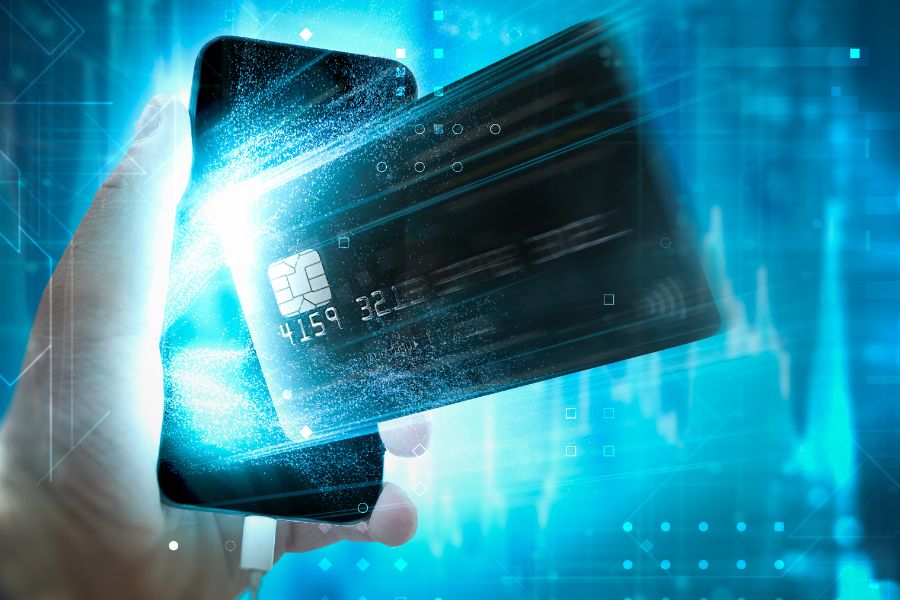Unique Passwords: The Importance of Using Different Passwords for Different Accounts
June 27, 2023, 6 min read
Passwords have emerged as the most important security measure for our online accounts. Despite this, many users still make the grave mistake of using the same password for multiple accounts. This blog post exposes the risks and emphasizes the crucial importance of unique password creation and management. Strengthen online security by using different passwords for each account and following best practices.
The risks associated with using the same password for multiple accounts are many. If a cybercriminal gains access to one of your accounts, they can easily use that same password to access other accounts that use the same credentials. This is especially dangerous when it comes to sensitive accounts such as online banking, email, or social media. In some cases, cybercriminals use stolen passwords to launch targeted phishing attacks or to spread malware across different accounts.
In addition, the consequences of a successful cyber attack can be devastating. Identity theft, financial loss, reputational damage, and even legal consequences can all be consequences of a cyber attack. Therefore, it is crucial to take password security seriously and take proactive steps to mitigate the risks associated with using the same password for multiple accounts.
Understanding the Risks of Using the Same Password for Multiple Accounts
When we use the same password for numerous different accounts, we put ourselves in a tremendous amount of danger. To begin, if the security of one account is breached, the safety of all other accounts that use the same password is put in jeopardy. Criminals online frequently make an effort to take advantage of this vulnerability by deploying automated systems that check stolen credentials on a variety of platforms. Reusing passwords not only complicates the identification of the source of a security breach but also increases the likelihood of multiple accounts being compromised simultaneously. Not only does this expose our data, but it also puts at risk important information including financial records, emails, and social media profiles.
Creating and Managing Unique Passwords
Creating unique passwords for each account is vital to safeguarding our online presence. When crafting a password, it’s crucial to avoid easily guessable combinations such as common words, personal information, or sequential numbers. Instead, opt for a combination of upper and lower case letters, numbers, and special characters. A strong password should ideally be at least 12 characters long and unrelated to any personal details.
To ensure the security of our online presence, it is imperative to devise unique passwords for each account. When creating a password, it is crucial to avoid combinations that can be easily guessed by cyber criminals. This includes using common terms, personal information such as names or birthdates, or consecutive numbers. Hackers often use automated tools that can quickly crack passwords based on such predictable patterns.
Instead, aim to create a password that is a combination of upper and lower case letters, numbers, and special characters. This mixture adds complexity to the password, making it significantly harder for attackers to crack. By incorporating a variety of character types, you increase the possible combinations, enhancing the overall strength of the password.
Length is also an essential factor in password strength. A secure password should ideally be at least 12 characters long. The longer the password, the more difficult it becomes for hackers to employ brute-force attacks or use sophisticated algorithms to crack it. It’s worth noting that password length is often more critical than complexity alone.
Generating Strong and Complex Passwords
Furthermore, it is crucial to ensure that the password is not tied to any personal information in any way. Cybercriminals often gather information from social media profiles, public records, or data breaches to guess passwords associated with users’ details. Therefore, avoid using common words or phrases related to your personal life, such as the name of a pet or a favorite sports team.
While creating strong and unique passwords may seem challenging, it is a critical step in securing your online accounts. Remember that the potential consequences of a security breach far outweigh the inconvenience of creating and remembering complex passwords.
Developing one-of-a-kind passwords for each account is vital for maintaining online security. By avoiding easily guessable combinations, using a mix of character types, ensuring sufficient length, and avoiding personal information ties, we can significantly enhance the strength of our passwords. Taking the time to create strong passwords is an investment in our digital security, providing us with peace of mind and protecting our valuable personal information from cyber threats.
Using Password Managers to Store and Organize Passwords
We can save and organize our passwords more safely with the assistance of convenient software known as password managers. These apps generate and save one-of-a-kind passwords for each account, doing away with the requirement that users commit such information to memory. Because we use password managers, we only need to recollect one password to access all of our accounts. This is the master password. In addition, many password managers provide additional functions, such as an evaluation of the strength of a user’s password, the ability to auto-fill fields, and synchronization across various devices. These features make the management of passwords simple and secure.
Regularly Updating and Changing Passwords
It is necessary to update and change passwords consistently to maintain a high level of security. Cyber threats are always evolving, and cybercriminals frequently get access to password databases throughout their attacks. Changing passwords regularly helps us lower the likelihood that unauthorized users may gain access. It is advisable to change passwords every three to six months, or immediately in case of a security breach or suspicion of password compromise.
Implementing Multi-Factor Authentication (MFA)
The use of multi-factor authentication, also known as MFA, adds a layer of protection to our accounts. It combines something that we know (a password) with something that we have (for example, a verification code given to a mobile device) or something intrinsic to us (for example, biometrics). Multiple Factor Authentication (MFA) significantly enhances security by making it significantly more challenging for malicious actors to gain unauthorized access. Enabling MFA whenever possible efficiently protects our accounts from unauthorized access, even if someone steals our password.
Best Practices for Using Unique Passwords
To ensure maximum password security, always follow certain guidelines. Never share passwords or store them in accessible places. Avoid using the “Remember Password” feature and be cautious of phishing scams. Verify website legitimacy before entering login information. Monitor accounts for suspicious activity and report unauthorized access promptly.
Utilizing a unique password for each account is yet another recommended best practice. Even though it may be difficult to keep track of many passwords, doing so is a necessary evil to protect the sensitive information that you own. Consider utilizing a passphrase rather than a password so that you can assist with this matter. Passphrases are lengthier and simpler to remember than passwords; for example, “Ilove2playGuitar!” might serve as a passphrase rather than “Password123.” In addition, steer clear of employing any overused terms or information that is obvious.
In addition, it is important to maintain proper password hygiene by avoiding the reuse of previously used passwords. If you reuse passwords on many accounts, you are increasing the risk that a hacker will be able to access all of those accounts. Keep in mind that a strong and unique password provides guaranteed effectiveness only until it gets breached. Make a habit of regularly changing your passwords, especially after a security incident or if you suspect they have been compromised. This practice will help you stay vigilant and proactive.
The maintenance of a robust password security system requires education and awareness as essential components. Maintain a consistent education regimen that focuses on the most recent security threats and methods employed by cybercriminals. Stay vigilant about data breaches and make regular password resets a routine, especially for any accounts that may have been compromised.
Conclusion
Preserve online privacy and safety with unique passwords for each account. Educate yourself on password dangers, follow best practices, and reduce the risk of cyber attacks. Use a password manager, change passwords regularly, and enable multi-factor authentication. Protect online identities for a secure internet experience. Extra effort for unique passwords is valuable for peace of mind.




























